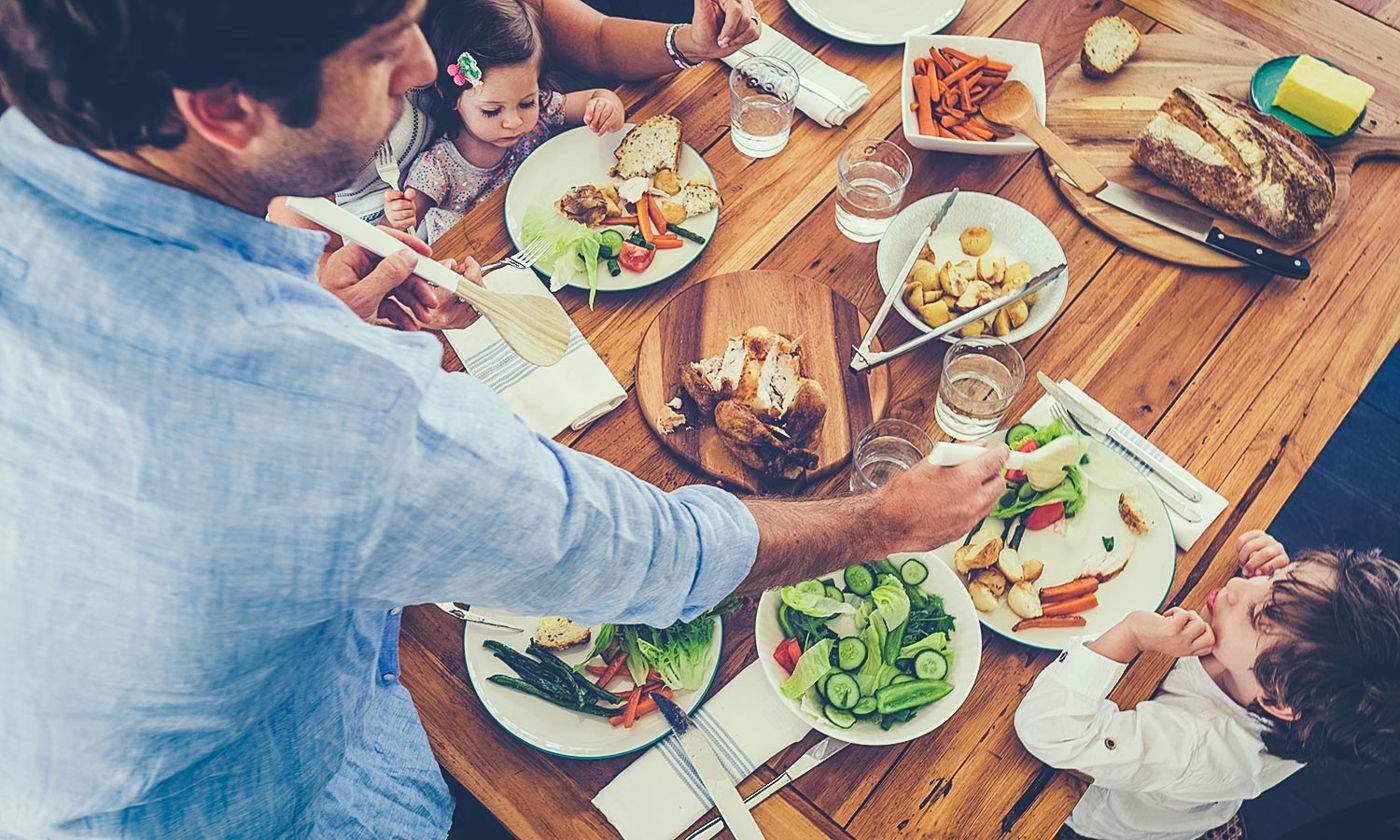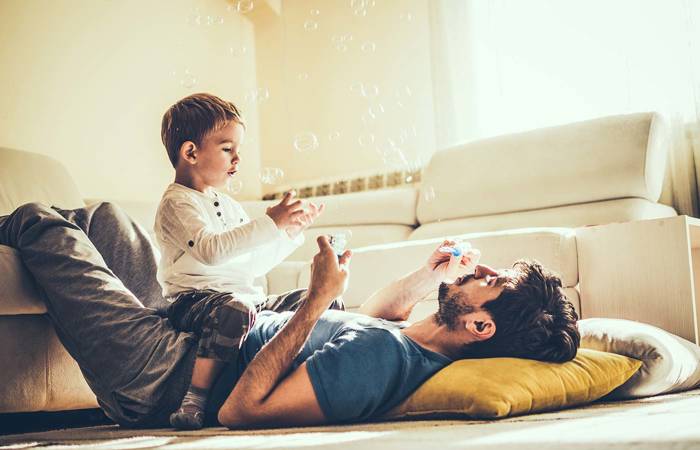Like what you see?
Sign up to receive more free parenting advice.
Thank you for subscribing to our newsletter!
Child Development

Credit: iStock.com/courtneyk
Never stop trying to connect with your child. Never stop trying to communicate with your child. Never stop listening to your child. That’s the key to building a relationship with your child that will permit you to tackle tricky teenage topics like love, sex, pornography, harassment and body image, according to psychologist, teacher and author Collett Smart.
In her new book They’ll Be Okay – 15 Conversations to Help your Child Through Troubled Times, Collett arms parents with the tools needed to build strong families and help keep their children safe, whole and happy.
She tackles the difficult topics facing teens and tweens, struggling with social media, relationships, and so much of what modern life is throwing at them, and also looks at emotional intelligence, empathy, respect and manners.
Collett says the foundations begin early however, and parents need to begin building the connections with their babies, toddlers and preschoolers.
“The little things are the big things to them. To earn the right to talk to children about the bigger topics you know that will come up in their life - the tricky topics - you have to keep investing in them so they know it’s what you do as a family,” she says.
“It can’t be something that comes out of the blue, suddenly trying to connect with them when you haven’t done it with them when they were three, four or five.
“Parents with young children will look at me wide eyed and say, ‘Okay, I’m dreading the teenage years’.
“I reassure them that it can be a wonderful time and they shouldn’t dread it, but they have to start investing now and keep investing and they will see the benefits down the road when their children are teenagers.”
As parents we are the first place they learn how to do relationships. We don’t have to do things perfectly. Even when we argue or disagree they learn how to do that well. That’s part of learning - not doing everything perfectly and having it be rosy all the time. It’s the hard stuff in life that they learn in relationships through us. They learn to get in touch with their emotions.Collett Smart
Stay up to date with the latest news and articles from First Five Years
Thank you for subscribing to our newsletter!
Invest in building a relationship
Collett says one of the basic foundations is loving your child and investing in building a relationship with them.
“Experts are coming out saying the next health epidemic is loneliness. For me the way that we combat loneliness is through relationships. I believe that we are made for relationships as human beings.
“Authoritative parents are warm and engaging, responsive to their child, but still have very firm boundaries and structure.
“Warmth and structure make their kids feel safe. Those things are important in starting the foundation of relationships with kids.
“As parents we are the first place they learn how to do relationships. We don’t have to do things perfectly. Even when we argue or disagree they learn how to do that well. That’s part of learning - not doing everything perfectly and having it be rosy all the time. It’s the hard stuff in life that they learn in relationships through us. They learn to get in touch with their emotions.
“I have a whole section in the book on learning that all emotions are important, not just happiness. It’s not that I don’t want them to be happy, but it’s not just about happiness. It’s recognising they don’t have to be happy all the time.
“Sometimes boundaries don’t make them happy. The boundaries keep them safe, but the boundary might not make them feel happy in that minute.
“It’s also about helping them understand grief and fear. It’s okay to have fears. Some fear keeps them safe so they don’t fall on the train track. It’s about helping them to manage their anxieties in healthy ways.
“If you feel sad it’s okay. It’s okay to feel angry at certain times in your life – if you’ve been bullied or injured. Parents teach them to handle that while feeling safe in a relationship they know they can trust.”
Be honest with our children about our mistakes
Collett says that if we make a mistake we need to be honest with our children.
She says parents are not perfect and make mistakes, but correcting those mistakes is an equally important lesson for children.
“We model behaviour as parents. Sometimes we mess up and let out an angry response. Even in doing that, we teach children how to apologise and make things right. We apologise to our children and that increases trust in our kids. They learn they can come back to a relationship and make things right again.
“The basis of parenting is modelling. Parents know where we say, ‘Don’t do what I do, do what I say’ doesn’t work. Children do what we do.
“We have to ask ourselves are we trying to demonstrate that other people’s needs also matter? Are we polite and kind? Do we use manners? Do we gossip about other people in our own lives?
“It’s not about being perfect. It’s about saying when I did that, I was wrong. We model to our children through apologies and by doing things imperfectly we are showing them our humanness and that we are trying to grow. It gives our children permission to learn from their mistakes as well.”
Collett offers one warning for parents - to examine their motives for sharing past mistakes with children before doing it.
She urges parents to consider why they are sharing the mistake and whether or not it is age appropriate.
“Parents should ask themselves, ‘Is what I’m sharing best shared with another adult? Is it an issue that I just need adult support with? Am I sharing something that could become a burden for them’,” Collett says.
“On the other hand, owning up to how you have failed your child by shouting or flying off the handle, that’s absolutely appropriate to apologise for.”
Teach unconditional love
Collett says that teaching children about unconditional love in the home is an important part of building their resilience.
“Kids who are resilient know that no matter what happens in their homes or lives they will always have homes to come back to as a safe place. They know there is a safe place if they have made mistakes or messed up.
“Unconditional love doesn’t mean you don’t have boundaries. They have boundaries and consequences, but it isn’t rejection.
“They might have had a consequence if they snuck technology into bed at night and they lose it for the next day. It doesn’t mean you don’t love your child when you put in a consequence. It’s not a withdrawal of love. Even though their behaviour might not be accepted, they are fully accepted.
“Resilient kids know there is a safe place to come to. They are secure in their attachment to you no matter what they have done. Through that love they learn how to deal with some of their emotions.
“They learn to grow and bounce back stronger or in more healthy ways as they grow in resilience. It doesn’t happen overnight, but you come back a stronger person with practice. You exercise it like a muscle.”
The role of play
Collett says play has an important role in connecting with children.
“The foundation of wellbeing for your kids is in relationships, knowing they are love-worthy and the language for children is play.
“You actually connect with your child through play and by finding time and ways that work for them. It might be Lego, dress-up or kicking a ball.
“Paediatricians are prescribing play for parents and kids to enhance kids’ wellbeing. They know kids are not playing enough in this age of technology.”
Collett suggests families can introduce the ‘love bomb’ – a once or twice a year opportunity to really invest in one-on-one time with your child.
She says it can be done on a budget or for free as long as it makes your child feel special, as you connect with them for one day without siblings or others.
“The love bomb is a beautiful example of saying to your child, ‘You can pick a day when you choose something special. This is your day and we celebrate you.’”






